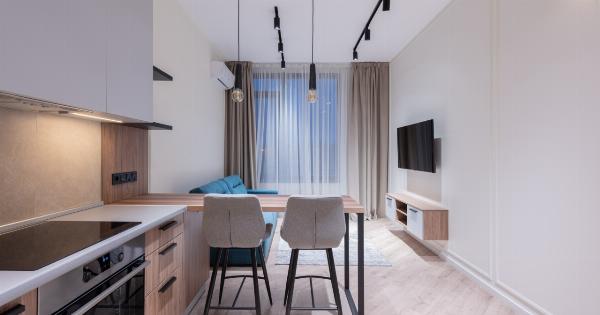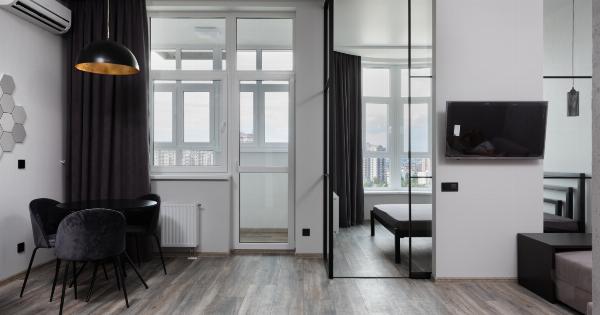Air conditioning has revolutionized the way we experience comfort in our homes and workplaces. Gone are the days of enduring sweltering heat during summer or battling freezing temperatures during winter.
With a properly functioning air conditioning system, we can enjoy the perfect climate indoors regardless of the weather outside.
Importance of Air Conditioning
The importance of air conditioning goes beyond merely providing comfort. It plays a crucial role in maintaining good indoor air quality and promoting health and well-being.
Air conditioning helps regulate temperature, humidity, and airflow, creating an environment that promotes productivity, sleep, and overall comfort.
Choosing the Right Air Conditioning System
With a wide variety of air conditioning systems available in the market, it is essential to choose the right one for your space. Factors such as the size of the area, insulation, and energy efficiency should be considered to make an informed decision.
Consult with a professional HVAC technician to determine the optimal air conditioning system for your specific needs.
Optimizing Performance
Once you have the right air conditioning system installed, there are several tips and techniques you can employ to optimize its performance:.
1. Regular Maintenance
Regular maintenance is key to ensuring the longevity and efficiency of your air conditioning system. Clean or replace filters regularly, check for any leaks or blockages, and schedule professional servicing at least once a year.
Regular maintenance will help your system perform optimally, reduce energy consumption, and prevent costly repairs.
2. Proper Insulation
Proper insulation is essential to keep the cool air indoors and prevent heat from infiltrating your space. Ensure that windows and doors are properly sealed, and consider installing additional insulation in walls, floors, and attics.
Good insulation will not only enhance the effectiveness of your air conditioning system but also save energy and reduce utility bills.
3. Thermostat Settings
Optimize your thermostat settings to balance comfort and energy efficiency. Set your thermostat to a slightly higher temperature during summer and a slightly lower temperature during winter when you’re away from home or asleep.
Programmable thermostats are a great investment as they allow you to schedule temperature adjustments according to your daily routine.
4. Utilize Ceiling Fans
Ceiling fans can complement your air conditioning system by improving air circulation and creating a wind-chill effect.
Using ceiling fans in conjunction with air conditioning allows you to set the thermostat at a higher temperature while maintaining comfort levels. Remember to adjust the fan’s rotation direction to counter-clockwise during summer and clockwise during winter.
5. Avoid Heat-Generating Activities
Heat-generating activities, such as using the oven or running appliances during the hottest parts of the day, can significantly impact the load on your air conditioning system.
Try to schedule these activities for cooler times of the day or opt for alternatives that produce less heat, such as grilling outdoors or using smaller appliances.
6. Manage Sunlight and Shade
Sunlight can quickly heat up your space, forcing your air conditioning system to work harder. Use shades, blinds, or curtains to block direct sunlight. Additionally, consider installing reflective window films that can help reduce heat gain.
By managing sunlight and shade effectively, you can lessen the load on your air conditioning system and improve energy efficiency.
7. Smart Controls and Home Automation
Take advantage of smart controls and home automation systems to optimize your air conditioning system’s efficiency.
These technologies allow you to monitor and adjust the temperature remotely, set customized schedules, and receive energy consumption reports. By having complete control over your air conditioning system, you can make informed decisions to save energy and enhance comfort.
8. Improve Indoor Air Quality
Air conditioning systems not only regulate temperature but also play a crucial role in maintaining indoor air quality.
To enhance indoor air quality, regularly clean and replace filters, consider installing air purifiers or ventilation systems, and prevent pollutants from entering through proper sealing and regular maintenance of your system.
9. Energy-Efficient Upgrades
Consider upgrading to energy-efficient air conditioning units or HVAC systems. Look for systems with higher SEER (Seasonal Energy Efficiency Ratio) ratings, as they consume less energy while delivering the same cooling performance.
Energy-efficient upgrades may require an initial investment, but they can lead to substantial energy savings in the long run.
10. Consult with HVAC Professionals
When in doubt, consult with HVAC professionals. They possess the knowledge and expertise necessary to assess your specific requirements and provide tailored advice.
HVAC professionals can assist you in selecting the right air conditioning system, optimizing performance, and addressing any maintenance or repair needs.
Conclusion
Mastering the art of air conditioning involves understanding the importance of a well-functioning system and implementing strategies to optimize its performance and energy efficiency.
By following the tips and techniques outlined above, you can ensure a comfortable living or working environment while minimizing energy consumption and reducing your carbon footprint.
























